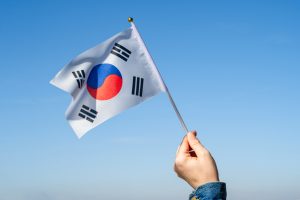The South Korean National Assembly’s December 14 vote to impeach President Yoon Suk-yeol, 204 to 85, in response to his rejected imposition of martial law on December 3, has reinforced democratic rule and checks and balances in South Korea. It is a fitting and proper response to Yoon’s shocking acts late on the night of December 3.
Yoon’s December 3 martial law decree, banning all political activities and suspending freedoms of speech and assembly, was an extraordinary attack on human rights and the rule of law. Yoon’s claims that it was justified – due to opposition efforts to impeach members of his cabinet and obstruct the government’s budget, and unspecified threats from “North Korean communist forces” – were ludicrous. In his telling, the political turmoil of his administration was as grave a situation as war.
The people of South Korea immediately rejected his gambit on December 3. Thousands of people raced from their homes into the freezing night to the National Assembly, where military special forces were assembling under orders to arrest political leaders and to stop lawmakers from voting to lift the martial law decree. Citizens spontaneously formed groups to block soldiers from entering the National Assembly, tightly clasping hands in a human chain to buy time for lawmakers to vote. Scuffles ensued.
In one widely shared video, Ahn Gwi-ryeong, an opposition party spokesperson, grabbed the barrel of a soldier’s assault weapon pointed at her and pushed it away, yelling, “Have you no shame? Have you no shame?” The crowds blocked military vehicles as they arrived at the National Assembly. One man stopped an armored vehicle by stepping in its path and refusing to move, shouting, “Over my dead body!” in an echo of the lone man near Tiananmen Square in 1989 who for a moment stopped Chinese military tanks. Unlike that incident, however, others quickly joined him.
190 lawmakers were ultimately able to gather inside the assembly – including members from Yoon’s own party – and they voted unanimously to reverse the martial law decree. A few tense hours later, Yoon reversed course and lifted the order. His attempt to impose martial law barely lasted six hours.
The courageous people who assembled at the National Assembly on December 3 understood the threats posed to their hard-won freedoms. Yoon’s announcement triggered many Koreans’ collective trauma from the country’s brutal past under martial law in the 1980s. Under martial law imposed by the military dictator Chun Doo-hwan, who came to power through a coup d’etat in 1979, the military massacred hundreds of pro-democracy student activists in the southwestern city of Gwangju in 1980 and used arbitrary arrests, torture, and executions to ensure Chun’s rule.
“I experienced martial law in 1979,” Lee Hyun-gyu, a 63-year-old retired teacher, told a local reporter. “I spent three and a half hours at the rally to block this from happening again to the next generation.” A woman in her 70s was overheard telling fellow protesters that older people should place themselves at the front of the scrum if the military began shooting, to protect the younger generation, to sounds of assent from the crowd. Kang Seon-gyong, 29, who stayed vigil all night at the National Assembly, said, “Even though I have to go to work in the morning, I’m going to hold my position in case I need to block the military and their armed vehicles from coming again. If I’m not here, democracy could fall.”
Yoon’s martial law order was as dangerously overreaching as Chun’s in the 1980s. In addition to suspending protests and civil gatherings, it placed the media under military rule and outlawed “fake news, public opinion manipulation, and false propaganda.”
Like the lawmakers, the media did not comply. Major news networks and newspapers immediately dispatched reporters to the National Assembly and provided live coverage all night. After Yoon’s announcement, editors and staff at the two largest local newspapers in Gwangju, the site of the 1980 massacre, barricaded their newsrooms and rushed to finalize and print copies to throw out their windows into the square below in the event that military paratroopers invaded their offices, as they had in 1980.
The head of South Korea’s police, Cho Ji-ho, later testified in the National Assembly that the military had asked the police on December 3 to help locate and detain 15 key opponents, including the leaders of opposition political parties. He also said that several hours before declaring martial law, Yoon ordered him to occupy the newsrooms of several media organizations, including MBC, one of South Korea’s largest broadcasters and a repeated target of criminal defamation charges by Yoon and his allies.
Another official testified that he was ordered to arrest a broadcaster and a union official, as well as several political leaders. Martial law troops also occupied the National Election Commission’s offices and confiscated the phones of five election officials.
A special police investigation team arrested Yoon’s former defense minister, Kim Yong-hyun, on December 8, charging him with insurrection. On December 11, the team arrested Cho on the same charge, along with another senior police official.
The historic resonance of the events of December 3 is undeniable. Democracies around the world are increasingly under attack from autocratic forces seeking to rule by fiat. The events that unfolded in South Korea on December 3 and 4 show that checks and balances in a democratic system are crucial to help stop abuses of power. But blocks on the misuse of power can only fully come into play – and democracy prevail – when ordinary people rise up and defend the systems that protect their human rights.
The Korean people who put their safety and lives at risk on December 3 should be lauded not just as heroic, but as inspirational.

































